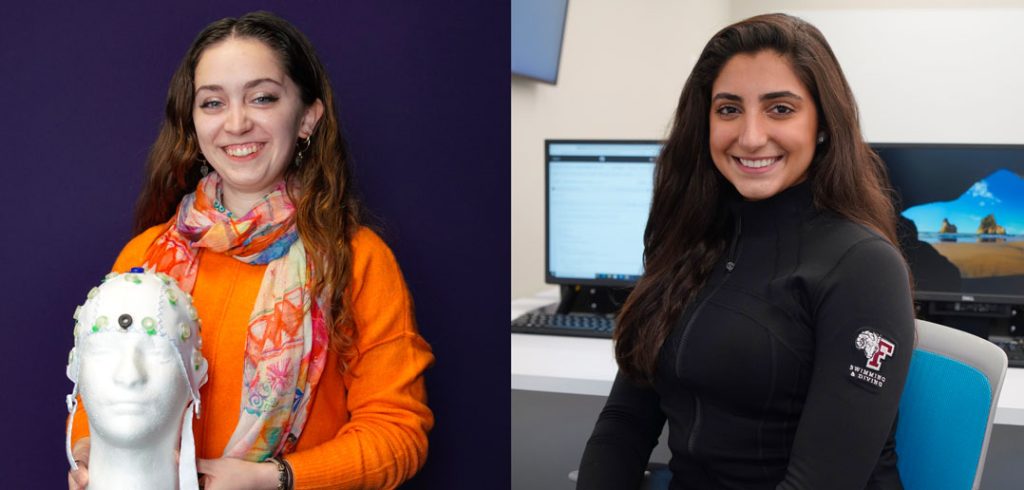This year’s DAAD-RISE recipients, Lindsey Berry and Luisa Rosa, are both juniors at Fordham College at Rose Hill who are pursuing majors in STEM. Since the DAAD-RISE program was established in 2005, Fordham has had 14 recipients, including this year’s.
“DAAD-RISE is an outstanding opportunity for our undergraduates. Not only do they conduct cutting-edge research over the summer, but they also get to know Germany—meeting fellow research scientists and locals—which helps them in any career they choose to pursue, from science and engineering to medicine and teaching,” said Lorna Ronald, Ph.D., director of Fordham’s Office of Prestigious Fellowships.
Studying How the Human Brain Processes Sound
Berry, the daughter of U.S. Air Force parents, has lived in five U.S. states and abroad in Germany and is currently an integrative neuroscience major and a German studies minor at Fordham. She conducts research in the University’s EEG Lab for Language and Multilingualism Research, where she studies second language acquisition and processing.
This summer, Berry will join the neuroscience group at Heilbronn University’s Center for Machine Learning, where she will study inattentional deafness—being unable to hear usually audible sounds, like alarms, because you’re too focused on a visual task. One example is texting while walking, and not noticing the sound of a nearby bicycle bell or a car engine.
“The greater scope of the research that I’ll be doing in Germany is that hopefully it will help people who have suffered brain damage, such as through strokes or traumatic brain injuries. By learning more about why and how inattentional deafness occurs, we can then work towards treatment options and learn more about how the brain filters out and processes certain auditory sounds,” said Berry, who plans on eventually earning her Ph.D. and becoming a psycholinguistics researcher.
Building a Device That Can Help Athletes in Real Time
Rosa is a computer and information sciences major at Fordham. She conducts research in the University’s Educational Data Mining Lab, where she analyzes data on Fordham student academic performance to understand grading patterns, instructor effectiveness, and future student performance. Rosa, an international student from Brazil, is also a member of the women’s swimming and diving team.
This summer, Rosa will join a human-computer interaction research group at LMU Munich to develop and evaluate a wearable sensor-based system that can give real-time feedback to athletes and those who want to improve their skills in any physical activity.
This system could someday help swimmers like herself. Rosa said she has about 30 teammates and two coaches at Fordham. It can be difficult for each athlete to receive individualized feedback during sports practices, she said. However, the system she will work on may have the ability to evaluate a user’s movements—stroke or breathing patterns, for example—and show them how to improve their movements in real time.
“I think this system has the potential to revolutionize sports, and I’m really excited to be a part of it,” said Rosa, whose long-term goals are to join a company like Google and eventually lead their data science research team.


